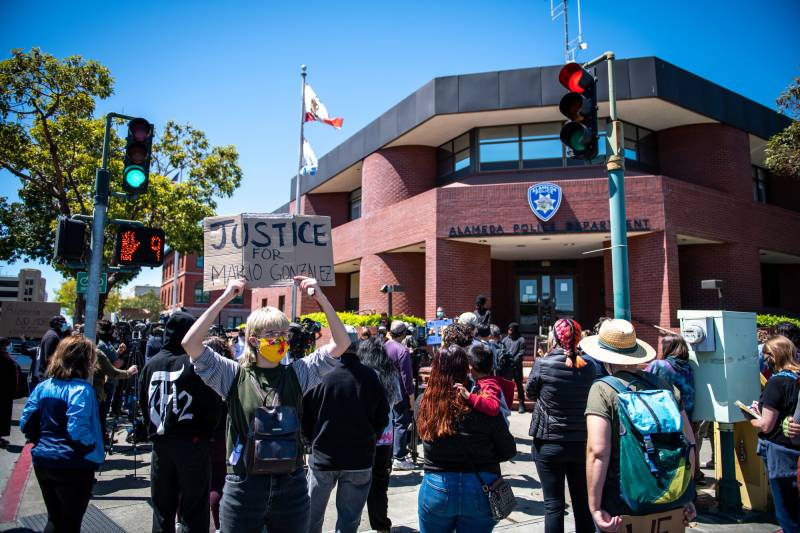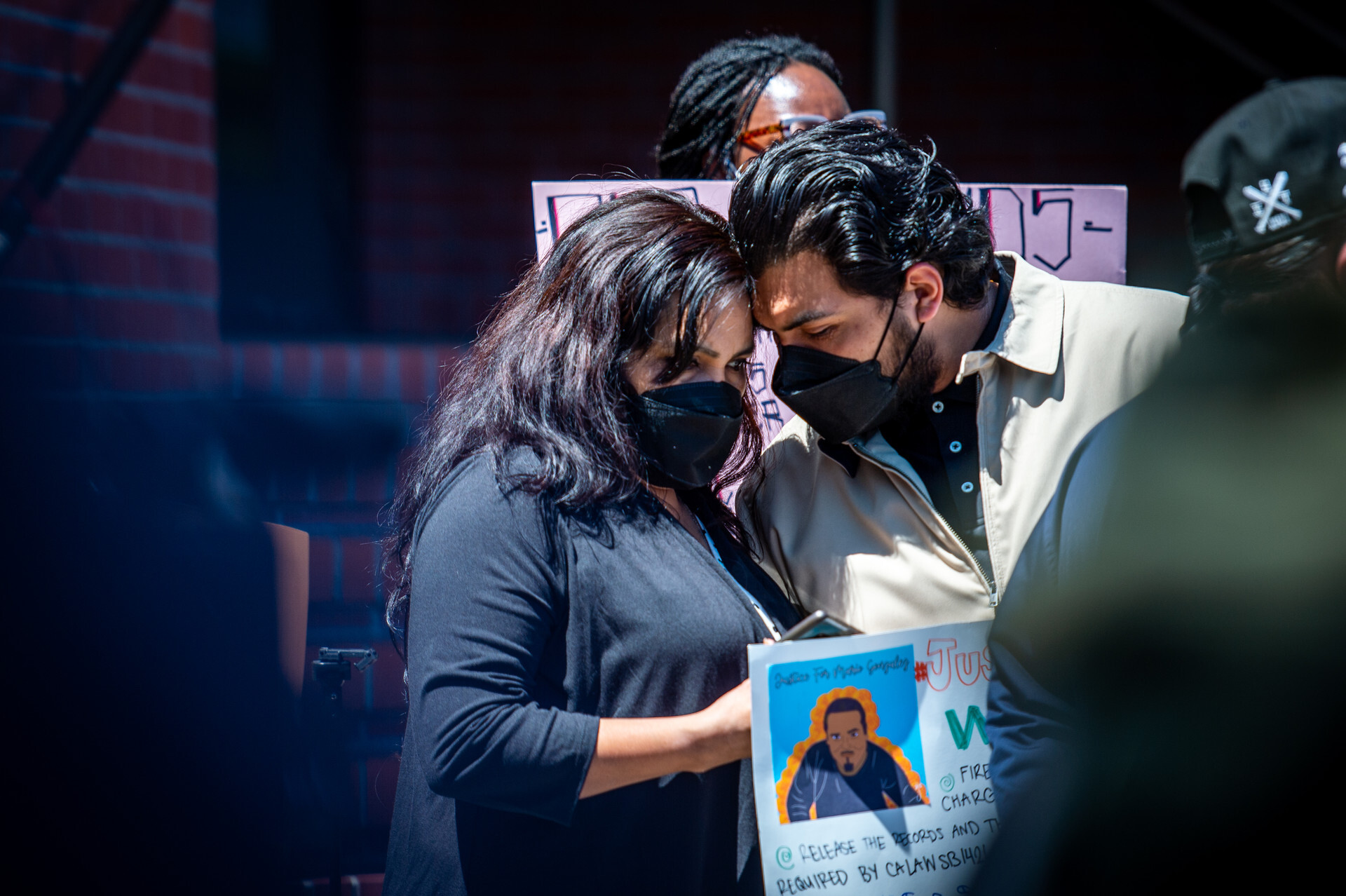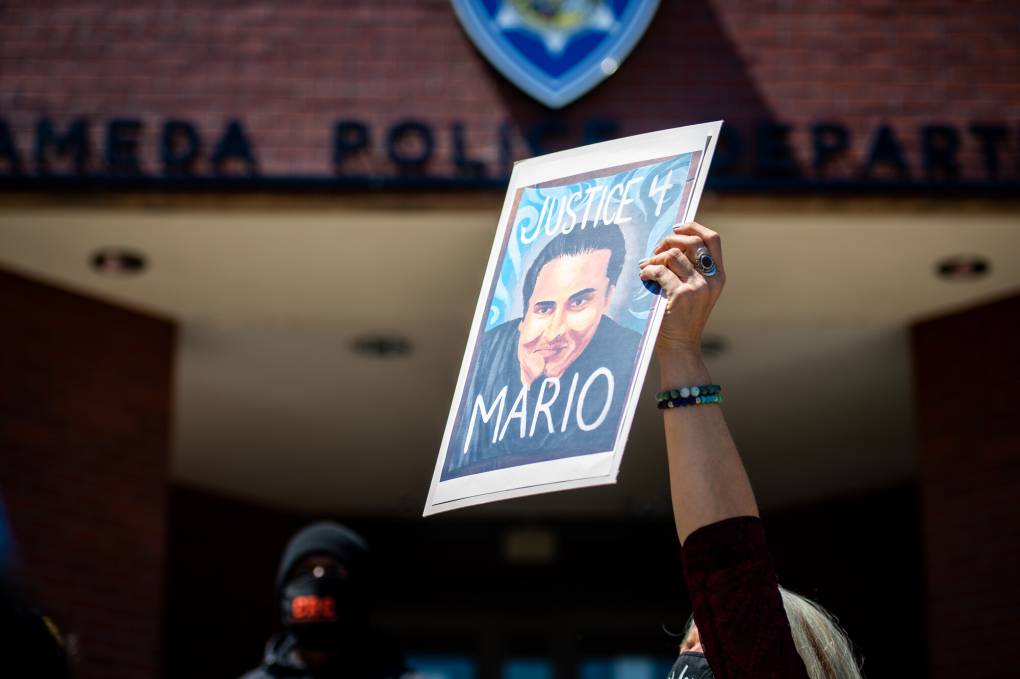“Another possible forensic pathology expert who could testify on cause of death for the prosecution relied on Dr. Omalu for review, leaving no way to avoid calling Dr. Omalu to the witness stand,” the statement reads.
Omalu did not respond to a request for comment.
Gonzalez’s death caused outrage and drew comparisons to the Minneapolis police killing of George Floyd in 2020. He was unarmed when officers responded to a 911 call of a man behaving strangely in an Alameda park. Body camera footage released by the city shows the officers pin down Gonzalez, who is mumbling and appears not to be fully lucid after he resists being handcuffed.
At least one officer pressed an elbow and knee into Gonzalez’s back and shoulder, and after about five minutes, the officers rolled Gonzalez onto his side, saying he was becoming unresponsive. Officers administered CPR and at least two doses of Narcan before Gonzalez was taken to a hospital, where he was later declared dead.
The video footage spurred Gonzalez’s family to accuse the officers of murder, calling it a clear case of police brutality.
The initial autopsy by the Alameda County coroner classified Gonzalez’s death as a homicide but noted contributing factors to his cardiac arrest were the “toxic effects of methamphetamine,” stress related to altercation and restraint, obesity and alcoholism. Omalu’s autopsy, independently requested by Gonzalez’s family, showed that his death had been “a result of restraint asphyxiation.”
After O’Malley declined to file charges, Price reopened the case shortly after she took office in 2023 as part of a new Police Accountability Unit, which reopened eight police shootings or in-custody death cases in early 2023.
The decision from the district attorney’s office to drop charges against McKinley comes just weeks after Royl Roberts, who was Price’s second in command, took over as the interim head of the office.



